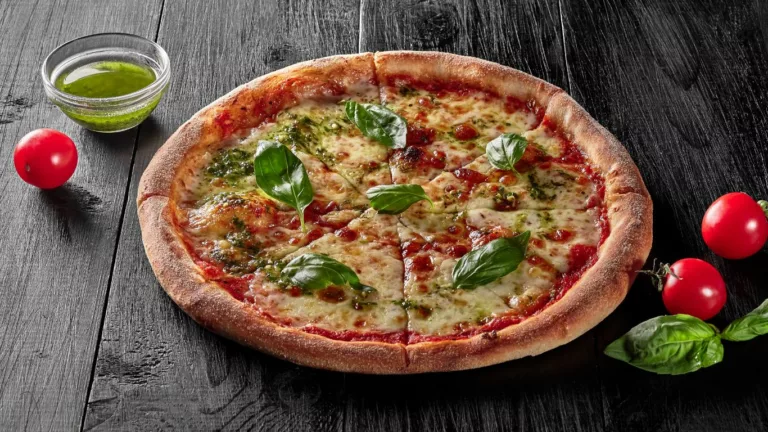10 Delicious GERD Friendly Brunch Ideas That Soothe Your Stomach
If you’ve ever dealt with GERD (gastroesophageal reflux disease), you know how tricky it can be to find meals that don’t flare up those uncomfortable symptoms. Brunch, a favorite social and weekend meal for many, often includes rich, spicy, or acidic foods—pretty much the opposite of what someone with GERD should be eating. Over the years working as a Medical Assistant in a Gastroenterology Clinic, I’ve seen firsthand how diet tweaks can make a huge difference in managing GERD symptoms. That’s why I’m excited to share some practical, tasty, and GERD friendly brunch ideas that are gentle on your stomach but still feel like a treat.
Understanding GERD and Why Diet Matters

Before jumping into brunch suggestions, let’s quickly recap why diet plays such a critical role in controlling GERD symptoms. GERD occurs when stomach acid flows back into the esophagus, causing that dreaded burning sensation and discomfort. Certain foods can weaken the lower esophageal sphincter (LES), the valve that keeps acid in the stomach, or directly irritate the esophagus lining.
From my experience working in the clinic, patients often find relief by avoiding common triggers like spicy dishes, caffeine, chocolate, and fried foods. The tricky part is, brunch often involves eggs cooked in butter, tomatoes in sauces, or citrus fruits, all of which can cause irritation. But with a little creativity, it’s definitely possible to craft meals that satisfy your cravings and keep reflux at bay.
Top Tips for Creating GERD Friendly Brunch Ideas

When you’re planning a brunch that’s gentle on your digestive system, here are some key things to keep in mind:
- Choose low-acid fruits: Apples, pears, and melons are much safer bets than oranges or grapefruits.
- Opt for lean proteins: Turkey bacon or poached eggs instead of fried or greasy options help reduce fat intake, which can worsen reflux.
- Use gentle cooking methods: Steaming, poaching, or baking instead of frying keeps meals lighter and easier on your stomach.
- Avoid spicy and highly seasoned dishes: Simple herbs like parsley or basil add flavor without the burn.
- Watch portion sizes: Eating smaller, more frequent meals can reduce pressure on your stomach and LES.
These guidelines form the foundation of all the GERD friendly brunch ideas I’ll share, so feel free to keep them handy!
My Personal Take on GERD-Friendly Brunches
From the clinic, I’ve noticed many patients struggle with boredom in their diets after cutting out common brunch staples. When I first started helping my family with their reflux-friendly meals, I realized how important it was to keep things flavorful and satisfying — because no one wants their brunch to feel like punishment. Using fresh herbs, mild cheeses, and creative combos of veggies made the difference.
I remember one Saturday morning whipping up a simple spinach and feta omelette with a side of steamed sweet potatoes. It was comforting, filling, and best of all, reflux-free! That experience inspired me to dig deeper into recipes that don’t sacrifice taste for health.
GERD Friendly Brunch Ideas to Try

Ready for some tasty inspiration? Below are a few brunch ideas that I recommend for anyone looking to keep their GERD symptoms in check while enjoying their meal.
1. Veggie-Packed Egg White Omelette
- Use egg whites instead of whole eggs to reduce fat.
- Fill it with steamed spinach, zucchini, and a sprinkle of low-fat cheese.
- Season lightly with fresh herbs like chives or parsley.
2. Oatmeal with Pears and Cinnamon
- Cook oatmeal with water or almond milk for a creamy base.
- Top with diced ripe pears and a dash of cinnamon for natural sweetness.
- Avoid adding honey or sugar, which can trigger symptoms in some people.
3. Turkey and Avocado Wrap
- Choose a whole wheat or low-acid wrap to avoid triggering reflux.
- Use sliced lean turkey breast—easy on the stomach and packed with protein.
- Add creamy avocado for healthy fats that are gentle and satisfying.
- Skip tomatoes or spicy sauces; instead, try a light spread of hummus or plain Greek yogurt.
4. Sweet Potato Hash with Herbs
- Dice and roast sweet potatoes with a bit of olive oil and fresh rosemary or thyme.
- Add sautéed zucchini and bell peppers (mild, not spicy) for color and nutrition.
- Pair with a poached egg on top for a protein boost without grease.
Why These Brunch Ideas Work for GERD

When you’re living with GERD, it’s all about striking the right balance between nutrition, flavor, and symptom control. The ideas I’ve shared so far are carefully chosen because they focus on low-acid, low-fat ingredients that don’t upset the delicate lining of your esophagus or overwork your digestive system.
One thing I’ve observed during my time assisting patients is how important it is to avoid both extremes—too bland makes meals boring and unsatisfying, but too rich or spicy can bring on reflux quickly. These brunch options offer a middle ground where you can still enjoy a delicious meal without the worry of heartburn later.
Plus, many of these dishes include ingredients that provide fiber and protein, which help with digestion and keep you feeling full longer. From a clinical standpoint, fiber-rich meals can sometimes help reduce reflux symptoms by improving overall gut health, a fact often discussed during patient education sessions at the clinic.
How to Modify Your Favorite Brunch Recipes

One of the questions I get a lot from patients is, “Can I still enjoy my favorite brunch dishes without triggering GERD?” The good news is yes, with some smart swaps and a bit of creativity! Here’s how you can tweak popular brunch staples to make them more reflux-friendly:
Switch Up the Proteins
Instead of frying bacon or sausage, try leaner proteins like grilled chicken, turkey, or even plant-based options. Poached or boiled eggs work better than scrambled with butter or fried eggs, which can be heavy and greasy.
Replace Acidic Ingredients
Tomatoes, citrus fruits, and vinegar-based dressings are common brunch culprits. Swap these for milder alternatives like cucumbers, avocados, or roasted vegetables. If you love salsa or sauces, go for a homemade version without onions, garlic, or chili powder, which often cause irritation.
Use Gentle Cooking Methods
Baking, steaming, and poaching are your best friends. They keep foods moist without adding excess fat, unlike frying or sautéing in butter. When I worked with patients adjusting their diets, this tip alone helped many avoid flare-ups.
Incorporate Soothing Herbs and Spices
Instead of hot spices, use fresh herbs like basil, dill, and parsley to boost flavor naturally. Cinnamon and ginger are also great for adding warmth without upsetting your stomach. From personal experience, adding fresh herbs has made a noticeable difference in how my family enjoyed meals without reflux symptoms.
Practical Tips for Enjoying GERD Friendly Brunch

Here’s some advice that’s helped both my patients and me when creating reflux-safe brunches:
- Eat slowly and mindfully: Taking your time to chew and savor your food can reduce the chance of acid reflux by aiding digestion.
- Don’t overeat: Large meals put pressure on your stomach and LES. Keep portions moderate and consider smaller, more frequent meals if brunch is your main meal.
- Stay upright after eating: Avoid lying down right after brunch. Sitting up for at least 30 minutes helps keep stomach acid where it belongs.
- Hydrate wisely: Drink water or herbal teas, but avoid caffeine and carbonated drinks which can trigger reflux.
In my experience helping patients, these practical lifestyle adjustments often make as much difference as changing what’s on the plate. It’s a combined approach that really helps manage GERD successfully.
Delicious GERD Friendly Brunch Drinks to Complement Your Meal

Brunch isn’t just about the food — drinks play a big role in making the meal feel special. But if you have GERD, you’ve probably learned the hard way that many popular beverages can set off symptoms. Coffee, orange juice, and soda are frequent offenders, but don’t worry, there are plenty of tasty alternatives that won’t upset your stomach.
One of my go-to suggestions from the clinic for patients who love their morning caffeine is to switch to decaffeinated herbal teas like chamomile or ginger tea. These not only avoid caffeine’s acid-stimulating effects but can also soothe the digestive tract. Plus, making a homemade iced herbal tea with a touch of honey and fresh mint feels just as refreshing as any mimosa!
For those who enjoy smoothies, I often recommend blending low-acid fruits like bananas, melons, or pears with almond milk and a handful of spinach for a nutritious, reflux-friendly option. I’ve tried this myself many times on busy mornings when I needed something quick, gentle, and satisfying.
Meal Planning and Preparation Tips for GERD Friendly Brunch

When managing GERD, preparation is half the battle. Having reflux-friendly brunch options ready or easy to assemble can reduce the temptation to reach for something quick but triggering. Based on years of patient advice and personal kitchen experiments, here are some practical tips:
- Prep veggies in advance: Chop and roast or steam your favorite reflux-friendly vegetables early in the week, so they’re ready to add to omelettes, wraps, or hashes.
- Batch cook proteins: Boil eggs or grill lean turkey in bulk, then store in the fridge for quick meal assembly.
- Keep fruits handy: Slice pears or melons and portion them for grab-and-go servings.
- Make homemade sauces: Avoid store-bought dressings or salsas that often contain hidden acids or spices. A simple blend of olive oil, herbs, and a pinch of salt can transform a meal.
From my time in the clinic, I saw how this kind of meal prepping gave patients a sense of control and confidence. Instead of dreading brunch or risking symptoms, they could enjoy their food and feel better throughout the day.
When to Consult a Healthcare Professional
While adjusting your diet is a powerful way to manage GERD symptoms, it’s important to recognize when professional advice is needed. Persistent reflux that doesn’t improve with lifestyle changes or over-the-counter remedies should be evaluated by a gastroenterologist. During my work as a Medical Assistant, I often helped patients schedule appointments or prepare for tests like endoscopies, which can pinpoint issues beyond diet.
If you notice symptoms like difficulty swallowing, unexplained weight loss, or severe chest pain, don’t hesitate to seek medical help. A tailored treatment plan, including medications or further investigations, may be necessary to keep you healthy and comfortable.
Final Thoughts on Enjoying GERD Friendly Brunch
Managing GERD doesn’t mean giving up on the joy of brunch. With a few mindful choices, you can savor meals that nourish your body, delight your taste buds, and keep reflux symptoms in check. From gentle cooking techniques to smart ingredient swaps and thoughtful meal prep, the journey toward reflux-friendly dining is both achievable and enjoyable.
Remember, every person’s triggers and tolerance levels differ. It may take some trial and error to discover what works best for you, but the effort pays off in comfort and better quality of life. And trust me—from years spent assisting patients and trying recipes myself—the right brunch can feel like a little weekend celebration without the aftermath of heartburn.
References
Disclaimer
This article is intended for informational purposes only and does not replace professional medical advice. If you have GERD or other digestive issues, please consult your healthcare provider before making significant changes to your diet or treatment plan.

Camellia Wulansari is a dedicated Medical Assistant at a local clinic and a passionate health writer at Healthusias.com. With years of hands-on experience in patient care and a deep interest in preventive medicine, she bridges the gap between clinical knowledge and accessible health information. Camellia specializes in writing about digestive health, chronic conditions like GERD and hypertension, respiratory issues, and autoimmune diseases, aiming to empower readers with practical, easy-to-understand insights. When she’s not assisting patients or writing, you’ll find her enjoying quiet mornings with coffee and a medical journal in hand—or jamming to her favorite metal band, Lamb of God.







